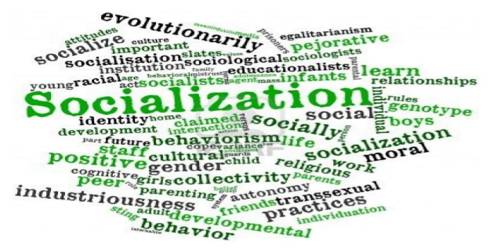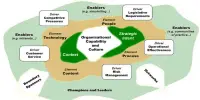Disability anthropology is a branch of anthropology that studies disability from a cultural, social, and historical standpoint. It is a branch of anthropology that studies disability studies through the lens of culture. It aims to understand how different societies define, perceive, and respond to disability, as well as how people with disabilities experience and navigate their lives in different cultural contexts. Medical anthropology and cultural anthropology are two of the most active subdisciplines in disability anthropology research.
The field of disability anthropology is concerned with understanding the sociocultural problems associated with disability and employs research to develop and evaluate approaches to problem solving or bringing about change in the disabled community. The study of disability in anthropology encourages researchers to employ a cultural lens and ethnographic approach to identify unfamiliarity and “otherness” among cultures.
Here are some key aspects of disability anthropology:
- Cultural Variation: Disability is not a universal concept; its meaning and definition differ across cultures. Disability anthropologists investigate how various societies construct notions of normalcy and difference, and how these constructions shape the experiences of people with disabilities.
- Social Construction of Disability: Disability is frequently regarded as a socially constructed phenomenon. Anthropologists investigate how societal attitudes, norms, and expectations influence the marginalization or inclusion of people with disabilities. This viewpoint calls into question the notion that disability is solely a medical or biological condition.
- Intersectionality: An intersectional approach is frequently used in disability anthropology, which considers how disability intersects with other social categories such as gender, race, ethnicity, class, and sexuality. This assists researchers in better understanding how multiple dimensions of identity contribute to the experiences of people with disabilities.
- Historical Perspectives: Anthropologists examine the historical context of disability, tracing how societal attitudes and policies towards disability have evolved over time. This historical lens helps to contextualize contemporary issues and understand the roots of certain cultural beliefs and practices related to disability.
- Agency and Empowerment: Individuals with disabilities have agency and resilience, according to disability anthropology. Researchers investigate how people with disabilities live their lives, confront societal barriers, and advocate for their rights. This viewpoint emphasizes the significance of enabling people with disabilities to fully participate in society.
Overall, disability anthropology helps to develop a more nuanced and culturally sensitive understanding of disability, while also challenging stereotypes and promoting social justice for people with disabilities all over the world.
















